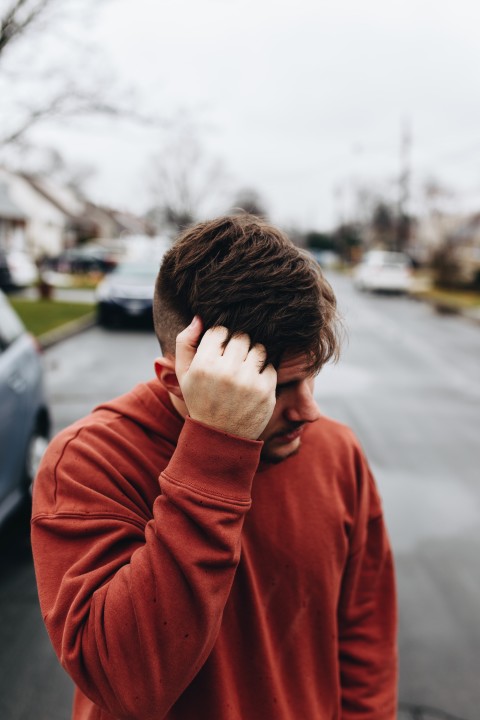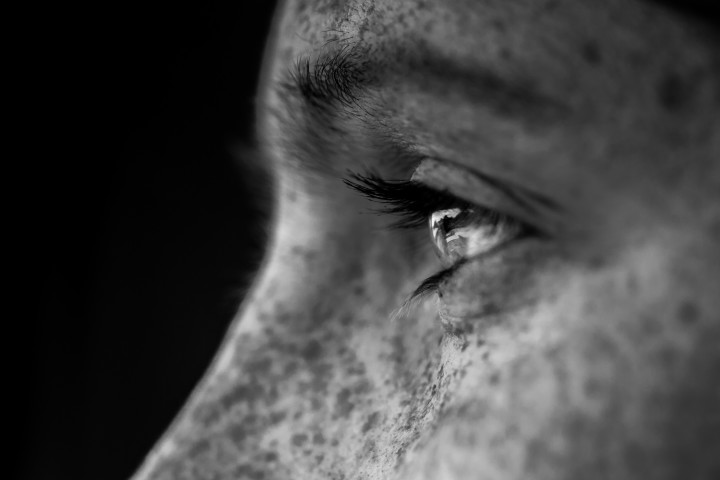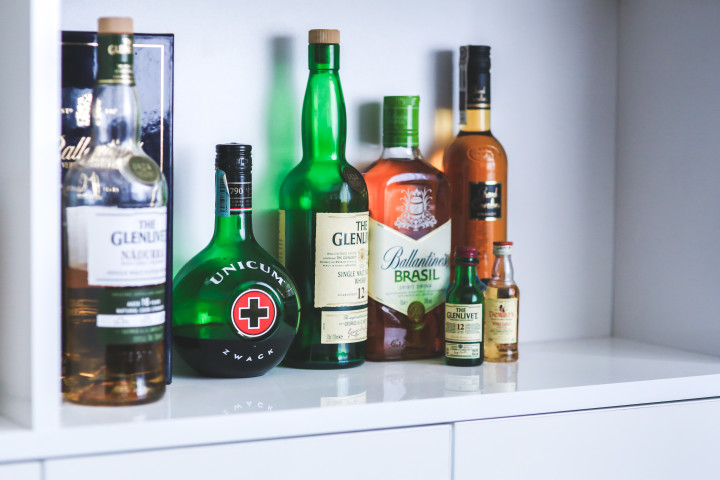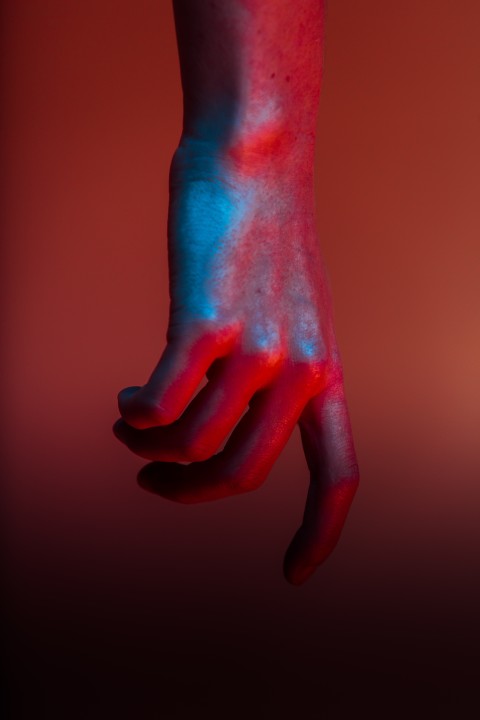Does Alcohol Cause Memory Loss?

If you’ve been abusing alcohol regularly and you’re feeling more forgetful, foggy, or confused, it’s probably not a coincidence. Alcohol abuse is linked to both temporary and permanent memory loss. Temporary memory loss is most likely after heavy drinking or binge drinking. This type of memory loss is usually not serious and may resolve on its own. But if you’re a heavy drinker or binge drink frequently, you’re at risk for long-term problems with memory. These problems may reverse with treatment, but in some cases, they can lead to permanent brain damage. Alcohol and Memory Loss: Temporary or Permanent Depending on your drinking patterns, alcohol can lead to short-term and long-term memory loss. Here are some ways alcohol and memory loss are linked: Short-Term Memory Loss from Alcohol Short-term effects of memory loss are most likely to occur when you’re intoxicated. You may have trouble remembering details of what you did while drinking. This can happen to social drinkers and people with alcohol addictions. Some research finds that people who have been drinking are more likely to forget words they have just learned. The research also indicates that people who are intoxicated are more likely to forget information they have just heard. This research did not directly compare the memory of people who had been drinking with the memory of people who had not been drinking. It’s possible that other factors, like sleep deprivation or stress, could affect memory problems in these studies. Long-Term Memory Loss from Alcohol Alcoholism and memory loss are linked. Permanent memory loss is more likely to happen if you drink heavily over a long period of time. Heavy drinkers are at risk for developing dementia, which is a condition that leads to a permanent decline in cognitive function. Heavy drinkers are more likely to experience issues with memory and thinking than light drinkers or non-drinkers. One study found that people who drank heavily were more likely to develop dementia later in life. Another study found that heavy drinkers were more likely to perform worse on tests of memory and executive function. Wernicke-Korsakoff Syndrome Wernicke-Korsakoff syndrome is a type of alcohol-related brain damage (ARBD) that can result from chronic alcohol abuse. Korsakoff syndrome used to be considered two separate conditions. Now it\’s generally considered one disorder with two different phases. Wernicke’s encephalopathy usually happens first, followed by Korsakoff\’s psychosis. Wernicke-Korsakoff syndrome can be reversed if it’s treated early. If it’s not treated, it can lead to permanent damage. Why Does Alcohol Cause Memory Loss? Alcohol addiction may cause memory loss by affecting the way memories are stored in your brain. For instance: Do Any Drugs Cause Memory Loss? In addition to alcohol, there are other substances that can cause memory loss. These include: Reversing Memory Loss from Alcohol: Is It Possible? There is some evidence to suggest that brain-related alcohol effects may be reversible. One study found that people who stopped drinking were more likely to experience improvements in memory and thinking than those who kept drinking. However, it’s important to keep in mind that not all studies have found such improvements. It’s possible that some of the damage caused by alcohol is permanent. Researchers are learning how to help people who have experienced memory loss recover brain function. Future event simulation (FES) is a memory technique that uses strategies like making linked and indexed lists. FES appears promising in aiding long-term recall for people with events that happened recently or for recurring events happening in the near future. According to other National Institutes of Health studies, eliminating alcohol over several months to a year may result in brain structure changes that can help the condition. Abstinence can also aid in reversing cognitive deficits like: In some cases, it may be possible to reverse memory loss. For example, if memory loss is caused by a vitamin B12 deficiency, treatment with vitamin B12 supplements can improve memory. If memory loss is caused by medications, changing or stopping the medication could improve memory. In other cases, such as dementia, memory loss may not be reversible. Signs You Have Memory Loss from Alcohol There are several signs that you may have memory loss from using alcohol. These include: Alcohol and Memory Loss: Risks There are a few risks associated with memory loss from alcohol. These include: Treatment for Memory Loss from Alcohol Alcohol abuse can damage your memory permanently, but there are treatment options available for people with memory loss from alcohol. These include: How Do You Treat Wernicke-Korsakoff Syndrome? Thiamine is a vitamin that is essential for proper brain function. A deficiency of thiamine can lead to Wernicke-Korsakoff syndrome. Supplementing with thiamine can help to improve symptoms and reduce the risk of further damage to the brain. Thiamine supplements are typically taken by mouth, but they may also be given intravenously (IV) in some cases. There is no cure for Wernicke-Korsakoff syndrome, but treatment can help improve symptoms and reduce the risk of further brain damage. Treatment typically includes a combination of: In some cases, hospitalization may be necessary to ensure thiamine supplements are taken properly and to monitor for complications. Abstaining from alcohol is an important part of treatment for Wernicke-Korsakoff syndrome. Alcohol consumption can make symptoms worse and cause further damage to the brain. Memantine, which is commonly used to treat Alzheimer’s disease, may also be effective in treating other types of dementia brought on by heavy alcohol consumption. Alcohol Addiction Treatment The best way to prevent cognitive impairments from alcohol is to quit drinking. When you’ve become dependent on alcohol, you’ll likely need to attend a professional alcohol addiction treatment program to get sober and stay sober. Alcohol rehab helps you safely detox from alcohol and then address the reasons why you drink, so you’re less likely use alcohol to cope in the future. Alcohol addiction treatment may include: Get Help for Alcohol Abuse, and Protect Your Memory The effects of alcohol can cause long-term damage to your body and your brain health. Don’t
How Long Is Rehab?

How is long rehab for drugs and alcohol? The individual and a number of personal factors can influence how long someone is in treatment, including: Most people who receive treatment for alcohol or drug addiction need to participate in some form of therapy for at least a few months. The length of time spent in treatment also varies depending on the type of treatment you choose. For example, in an outpatient treatment program, you’ll typically attend therapy sessions for several hours each week, but you won’t live at the treatment facility. On the other hand, people who attend an inpatient treatment program usually stay at the treatment facility for 30 days or more. There is no one-size-fits-all answer to the question, “How long is rehab?” Structured addiction treatment provided by a drug rehab center on an inpatient or outpatient basis can last several months. It’s also important to know that addiction recovery is something you’ll work on your entire life. Even after you leave structured addiction treatment, you’ll need to take part in activities that help prevent relapse. These may include: How Long Is Medical Detox? For some people, the first step in addiction treatment is medical detox. Drug or alcohol detox is different for everyone. Detox from drugs and alcohol depends on factors like: Detox can range anywhere from 2 to 10 days, depending on the severity of your addiction and the substance. In some cases, you may experience withdrawal symptoms for several months as your brain and body rebalance themselves. These can include: How Long Is Inpatient Treatment? Addiction affects all areas of life. It is a chronic, relapsing disease that requires intensive treatment and monitoring. Inpatient rehab (or residential treatment) provides 24-hour care and supervision. This is vital for people in early recovery. Inpatient treatment also allows you to focus only on your recovery, without the distractions and temptations of daily life. An inpatient treatment program for addiction typically lasts 30 days or more. Often, residential treatment at a recovery center is offered in increments of 30-, 60-, and 90-day programs. After completing inpatient treatment, most people transition to some form of outpatient treatment. This helps you gradually reintegrate into society and begin rebuilding your life. Outpatient treatment typically lasts for several months, although the exact length of time varies depending on the level of outpatient care you’re in and your specific needs. How Long Is a Partial Hospitalization Program (PHP)? A partial hospitalization program (PHP) is a type of outpatient treatment that provides intensive, structured care. Treatment length for PHPs is several weeks or months, although the exact length of time depends on your needs. PHPs are often used as a step-down from inpatient treatment or as an alternative to residential treatment for people who can’t or don’t want to live at a treatment facility. PHPs typically involve attending addiction treatment for several hours each day, five to seven days per week. These sessions are led by a team of addiction counselors, psychologists, and psychiatrists. PHPs include group therapy, which can provide support and accountability as you recover from addiction. You may also participate in individual therapy sessions and other activities, like meditation or yoga. The goal of partial hospitalization programs is to help you learn the relapse prevention skills needed to stay sober and live a healthy, happy life in addiction recovery. How Long Is an Intensive Outpatient Program (IOP)? An intensive outpatient program (IOP) meets for fewer hours per week than a residential or PHP program but more than a regular outpatient program. IOPs typically last for several weeks or months, although the exact length of time depends on your needs. IOPs typically involve attending therapy sessions for several hours each day on three to five days each week. These sessions are led by a team of addiction counselors, psychologists, and recovery support staff. Intensive outpatient programs are mainly comprised of group therapy, which provides support and accountability in recovery. You may also take part in individual therapy sessions and other activities, such as meditation or yoga. The goal of an IOP is to help you build on the relapse-prevention skills learned in a residential or partial hospitalization program while gradually getting back to your everyday life. How Long Is an Outpatient Program (OP)? An outpatient program (OP) is addiction treatment that provides less intensive outpatient care than an IOP or PHP. OPs last for several weeks or months, although the exact length of time varies depending on your individual recovery journey and the type of support you need to navigate early sobriety. Outpatient programs typically involve attending therapy sessions for one to two hours per week. These often take the form of group therapy, though some treatment programs will offer individual therapy as well. The goal of an outpatient program is to provide you a “home base” as you fully re-integrate into everyday life. As you encounter triggers and challenges at work, school, or in relationships, outpatient rehab provides a regular time each week to get support and strengthen your recovery with the help of professionals and peers. How Long Is Aftercare? Aftercare provides continued support for people in recovery from substance use disorders. Aftercare can last for months, or as long as you need it. Before you leave a structured addiction treatment program, a case manager or therapist will help you plan for life after rehab. An aftercare plan helps prevent relapse because it makes sure you have supports in place to maintain sobriety. Aftercare may include: Does Insurance Cover Drug Rehab? Substance abuse treatment is considered an essential health benefit under the Affordable Care Act (ACA), which means insurance plans must provide coverage for addiction treatment. There is still a lot of variation in how alcohol and drug rehab programs are covered by different insurance plans. Some insurance plans cover all or most of the costs of substance abuse treatment, while others only cover a portion of the costs. It’s important to check with your insurance provider to find out
Does Alcohol Cause Anxiety?

Does alcohol cause anxiety? Anxiety is often tied to both biological and situational factors, but if you feel more anxious in the hours or days after drinking heavily, it isn’t a coincidence. Many people experience an uptick in anxiety or what’s been dubbed “hangxiety” after drinking alcohol. Anyone can experience these effects, but it’s more common in people who have existing anxiety disorders like: There is something to the belief that alcohol can “calm your nerves.” Ethanol, the main ingredient in alcohol, is a depressant, which means it slows down your central nervous system. It does this by suppressing neuron signaling related to feelings like fear and stress. This can temporarily reduce anxiety because it may make you feel calmer and more relaxed. While drinking can initially feel like it’s calming you and loosening you up, drinking to ease anxiety can backfire. It’s a temporary feeling. Heavy drinking often causes rebound anxiety that is worse than the symptoms you were trying to self-medicate with alcohol. Your chances of experiencing anxiety from drinking are low if you have your doctor’s blessing and follow the U.S. dietary guidelines for moderate drinking: If you’re drinking beyond that—especially if you already have an anxiety disorder—you should take a closer look at your alcohol use. Why Does Alcohol Cause Anxiety? Alcohol can fuel anxiety in a few ways: Brain Chemical Imbalances Drugs and alcohol affect your brain’s reward center. The reward center is tied to human survival. It reinforces actions that are central to your survival by sending pleasurable feelings. Examples of behaviors you’re rewarded for include: Alcohol and drugs influence chemicals tied to your reward center. They tell your brain to produce more of these feel-good chemicals. That’s what provides the desired feelings from drugs or alcohol. The problem is that with ongoing alcohol abuse and overstimulation of feel-good chemicals like serotonin and dopamine, your reward center thinks you need alcohol to survive. It starts ranking alcohol right up there with food, sex, water, and sleep. Without alcohol, your brain starts sending you signals to do whatever you need to do to get more of it (survive). This can come in the form of mild or significant withdrawal symptoms. So does alcohol cause anxiety? Anxiety can be one of these alcohol withdrawal symptoms because your brain has begun relying on alcohol to suppress neurons tied to excitatory or fearsome chemical messages. When these neurons aren’t suppressed well enough, one of the results is often anxiety. BAC Levels Though alcohol is a depressant, research suggests you may feel some stimulating effects based on your blood alcohol concentration (BAC). These may include feeling talkative, energetic, and uninhibited. Blood alcohol concentration is affected by factors like: In general, people may feel the stimulating effects of alcohol up to around 0.08 mg/l BAC. After that point, the initial energetic and happy feelings start decreasing and the depressant effects of alcohol kick in. For people with anxiety, the stimulating effects can feel troublesome. For others, after the stimulating effects wear off, anxiety can result from feelings of restlessness and unease. Tolerance Using alcohol to cope with anxiety can begin a cycle that brings on even more anxiety. If you drink regularly, you’ll develop a tolerance to alcohol. It will take increasing amounts to get the effects you desire. If anxiety relief is what you’re seeking, it will start taking more alcohol to ease those symptoms. Your tolerance to the self-medicating effects of alcohol can lead to stress and anxiety. The Aftermath Indirect effects of alcohol can also be distressing. If you’re drinking to the point of memory loss or blackout, you’re likely to experience some anxiety over what went on during those lapses. Alcohol can make you feel uninhibited and act in ways you normally wouldn’t. This can cause embarrassment and anxiety after you sober up, especially for people with conditions like social anxiety who may already be sensitive to how others perceive them. How Long Does Alcohol Anxiety Last? Anxiety from alcohol can last for hours, days, or months, depending on the scenario. Alcohol and anxiety affect people differently, but generally: Anxiety and Alcohol Addiction About 20% of people with anxiety disorders also have a substance use disorder. When you have a mental health disorder and a substance use disorder, it’s known as a dual diagnosis or co-occurring disorders. It’s often difficult to determine which came first: the anxiety disorder or the addiction. That’s because people with anxiety may unknowingly self-medicate their symptoms with alcohol. On the other hand, over time, alcohol abuse can cause symptoms of anxiety because of the way it impacts brain chemicals. In both cases, you can get stuck in the addiction cycle of: Alcohol and Other Mental Health Disorders, Like Depression Anxiety and depressive disorders are common underlying issues in substance use disorders. About half of people with substance use disorders have co-occurring mental health disorders. Other mental health disorders that may co-occur with alcohol addiction include: Other Substances That Can Cause Anxiety Illicit drugs and some prescription drugs when abused are also tied to anxiety disorders. Like alcohol, drugs impact your brain’s reward center and interfere with brain chemicals responsible for: Drug-induced anxiety can be a symptom from the direct effects of the drug. They can also be part of withdrawal when you go without the drug. Drugs linked to anxiety include: Treating Alcoholism and Anxiety Alcohol addiction treatment must address underlying issues like anxiety, trauma, and other mental health disorders. Without getting to the root causes of drinking, you’re at high risk of relapse. Addiction treatment helps you manage mental health disorder symptoms and teaches you alternative ways to cope with anxiety and stress. Anxiety treatment may include research-backed behavioral approaches like: Anti-anxiety medications may be prescribed to also help manage symptoms. Other components of professional treatment for substance abuse may include: Looking for Help? Whether or not alcohol has caused your anxiety, if you are struggling with alcohol abuse and co-occurring disorders like anxiety, call us for a free,
What Is Alcohol Induced Psychosis?

Alcohol-induced psychosis can be frightening for the individual and those around them. It’s triggered by excessive alcohol consumption and other factors, such as co-occurring disorders. Alcohol-induced psychosis is a set of psychiatric symptoms. These may include: Types of Alcohol-Induced Psychosis Alcohol-related psychosis is categorized into three areas: 1. Alcohol Withdrawal Psychosis Alcohol withdrawal can be dangerous and even deadly. It can also bring about a temporary form of psychosis. Alcohol withdrawal delirium (AWD) is a psychosis that long-time heavy drinkers are at risk for when they quit drinking. Alcohol-induced psychosis can be a part of what is more commonly known as delirium tremens (DTs). People with DTs sometimes experience hallucinations or delusions. They may also feel like bugs are crawling on their skin. 2. Acute Alcohol Intoxication Acute alcohol psychosis can occur when you drink excessive amounts of alcohol. One night of binge drinking can trigger acute psychosis. This type of substance-induced psychosis is rare. It usually occurs when people drink similar amounts of alcohol which lead to alcohol poisoning. Most people will become unconscious before any psychotic symptoms appear. 3. Chronic Alcoholic Hallucinosis People who’ve been abusing alcohol for years are at risk for alcoholic hallucinosis. If you have alcoholic hallucinosis, you may experience auditory hallucinations: hearing sounds that aren’t there. Some people also experience: This type of alcohol-induced psychosis may occur sporadically for hours or days. Over time, alcoholic hallucinosis can begin mimicking symptoms of schizophrenia and last indefinitely. In some cases, chronic alcoholic hallucinosis leads to brain damage. This may include Wernicke-Korsakoff syndrome and long-term psychotic disorders. Symptoms of Alcohol-Induced Psychosis If you have alcohol-induced psychosis, you may experience a range of symptoms. These can vary in severity from hallucinations and paranoia to completely losing touch with reality. To an outsider, people in this state of mind may appear frightened or confused. Some people become aggressive and violent. People with this reaction may exhibit a few or several of the symptoms below: Is Alcohol-Induced Psychosis Dangerous? While heavy drinking can cause many dangerous health effects, alcohol-induced psychosis doesn’t directly impact physical health. The dangers of alcohol-induced psychosis come indirectly through its symptoms. If left untreated, people who are hallucinating or paranoid may put themselves or others in danger because of their distorted perceptions of reality and a false belief that they need to protect themselves from harm. Who Suffers from Alcohol-Induced Psychosis? Anyone who drinks excessively or has an alcohol addiction is at risk for alcohol-induced psychosis. People who are at increased risk for alcohol-related psychosis include: How Long Does Alcohol-Induced Psychosis Last? How long alcohol-induced psychosis lasts depends on the type and severity of the episode. It’s also linked to your personal mental health factors. People typically begin seeing symptoms of these episodes within 24 hours of their last drink because of alcohol withdrawal . Psychotic symptoms associated with alcohol can last for a couple days, and longer in rare cases. Alcohol-induced psychosis due to acute intoxication should subside after all the alcohol has left your body. Chronic alcoholic hallucinosis episodes can last for days, weeks, or months. How to Prevent Alcohol-Induced Psychosis Abstinence from alcohol—not drinking—is the best way to prevent this symptom. Anyone who drinks heavily or has an alcohol use disorder (AUD) is at risk for alcohol induced psychosis. People who’ve already experienced an episode are at greater risk of having another one. Following guidelines for moderate drinking or maintaining abstinence from alcohol will safeguard you from this condition. How Do You Treat Alcohol-Induced Psychosis? Anyone with alcohol-induced psychosis should get medical help immediately. Medical professionals may treat alcohol-induced psychosis by: It’s critical to get professional addiction treatment if you or someone you love has experienced alcohol-induced psychosis. You have a serious alcohol use disorder if your drinking has led to such an extreme outcome. Drug and alcohol rehabs provide medically supervised alcohol detox followed by structured and supportive treatment that helps you maintain long-term recovery. Get Help for Alcohol Abuse Addiction doesn’t get better on its own. If you or a loved one is struggling with alcohol misuse, don’t wait to get help. Footprints to Recovery’s treatment centers have helped thousands of people take back their lives from substance abuse. Our highly experienced clinicians provide evidence-based treatment. We help you address the root causes of substance use disorders and teach you skills needed for long-term recovery. Footprints offer all levels of care, including inpatient rehab and outpatient rehab options: It’s possible to take back your life from alcohol. Call us today for a free, confidential consultation and to learn about our treatment programs. References
Alcohol and Xanax: What Happens When They Mix?

Alcohol and Xanax (alprazolam) are both legal substances. They are also both addictive substances. In 2020 over 60 million Americans binged on alcohol and 4.8 million Americans misused prescription benzodiazepines like Xanax. Abusing alcohol or Xanax is dangerous and can be deadly. According to the CDC, non-fatal and fatal overdoses on benzodiazepines like Xanax increased by 24% from 2019 to 2020. Alcohol-induced overdose deaths increased by 25% during the same time period. While abusing Xanax or alcohol on its own is already dangerous, taking the two together can significantly increase those dangers. The combination also ups your risk of long-term physical and mental health problems. Why Do People Mix Alcohol and Xanax? People may take Xanax while they’re drinking alcohol in an effort to get “more of a good thing.” Alcohol and Xanax are both depressants. They slow down your central nervous system (CNS) by enhancing your brain’s gamma-aminobutyric acid (GABA). GABA is a neurotransmitter that helps you feel relaxed and calm by blocking certain CNS activity. GABA also helps you sleep. Both Xanax and alcohol can make you feel calm and less inhibited. Some people may take Xanax with alcohol in hopes of intensifying these desirable effects. The problem is that this combination is always risky. Mixing alcohol and Xanax can be dangerous and even fatal. Dangers of Mixing Xanax and Alcohol Taking Xanax and alcohol together compounds the dangers of taking them separately. Xanax can exaggerate the effects of alcohol and vice versa. When you mix alcohol and Xanax together, you’re at increased risk for several physical and mental side effects. Physical Side Effects of Mixing Alcohol and Xanax Behavioral Health Side Effects of Mixing Alcohol and Xanax What makes mixing alcohol and Xanax especially dangerous is the risk of respiratory suppression. Since these substances slow down your central nervous system, when taken together, they may slow breathing so much that you overdose or go into cardiac arrest. How much it takes for an alcohol or Xanax overdose depends on your physical make-up and health. There is no way to know until it happens. It can be easy to take dangerous amounts of Xanax or alcohol because of the effects they have on your memory. You may forget that you already took Xanax and take it again, or drink more than you normally would. Your body can get overwhelmed as it tries to process alcohol and Xanax at the same time. This keeps both substances in your body longer. You may think you’re more sober than you are. Mixing Xanax and alcohol can lead to situational danger. For instance, poor coordination and delayed reactions can lead to falls or car accidents if you’re driving. Long-Term Effects of Xanax and Alcohol Abuse Besides the possibility of overdose and death, alcohol and Xanax abuse can have long-term consequences to your physical and mental health. Abusing both substances puts you at risk for the detrimental effects of taking either alone. Long-term risks of alcohol and Xanax abuse include: Addiction Regularly abusing Xanax or alcohol can lead to a full-blown addiction. Your brain and body get used to having these substances in your system. This can cause changes in brain chemistry. Your central nervous system begins relying on them for certain functions. You develop a tolerance and dependency and experience withdrawal symptoms when you go without Xanax and alcohol. Cognitive Issues Both Xanax and alcohol have been shown to impair cognitive functioning. They can have a negative impact on: Liver Problems Most people know that alcohol can damage your liver, but long-term, heavy Xanax use can also impair liver functions. Xanax can elevate your liver enzymes, leading to liver inflammation and liver tissue damage. If you combine the two substances, liver damage can be even more severe. Mental Health Disorders Xanax and alcohol affect neurotransmitters responsible for: Over time, they can deplete chemicals that stabilize your mood and nervous system. This can lead to anxiety and depression symptoms. Poorer Quality of Life You cannot compartmentalize alcohol and drug addiction. Alcohol and drug abuse impact all parts of your life. Your relationships struggle. You don’t do as well at work or school. You may even run into financial or legal problems because of the choices you make while you’re under the influence of drugs and alcohol. All these consequences impact your overall well-being and happiness. Withdrawal Symptoms of Alcohol and Xanax If you’ve been abusing alcohol and Xanax, you’ll likely go through withdrawal when you stop using them. Even people who use Xanax as prescribed for a long period of time need to slowly taper off the drug. Withdrawal symptoms for alcohol or any type of drug affect your body and brain and depend on factors like: Alcohol and Xanax withdrawal is like detoxing from other depressants. You can experience alcohol withdrawal symptoms and Xanax withdrawal symptoms more intensely than just detoxing from one of the substances. As your central nervous system adjusts to the absence of these two substances you may experience withdrawal symptoms like: The time it takes you to detox from alcohol and Xanax depends on individual factors and how severe your substance use is. Generally, withdrawal symptoms begin within the first day of being off alcohol. Severe withdrawal symptoms peak at two to three days into the process. Usually, the most uncomfortable symptoms of detox are over within five to seven days. But often people have lingering psychological withdrawal symptoms for weeks or months. This is called post-acute withdrawal syndrome (PAWS). It can include: These symptoms occur as your brain chemicals rebalance themselves. Your brain is used to depressants being in your system and helping produce certain brain chemicals. Without Xanax or alcohol, it takes time to begin producing regular amounts of these chemicals on your own. These are chemicals tied to mood, movement, memory, and motivation so these types of functions will be affected until the body repairs itself. Do You Need Medical Detox for Alcohol and Xanax? One of the most dangerous substances to detox from is
OxyContin vs Oxycodone: What’s the Difference?

Oxycodone is a prescription pain medication. OxyContin is a brand name for oxycodone. When it comes to OxyContin vs oxycodone, the primary difference is that OxyContin is a controlled-release oxycodone medication. Pain-relief properties are released over several hours instead of all at once, which is what oxycodone does. Both oxycodone and OxyContin have a high potential for abuse because of they produce euphoria effects when taken in large doses. What Is Oxycodone? A narcotic analgesic, oxycodone is a prescription medication that contains opioids. Brand names for oxycodone include: Like other opioids, oxycodone comes from the poppy plant. It is a semi-synthetic opioid, which means it goes through chemical reactions in a laboratory to get to its form. It used to be prescribed generously to treat pain. Once it became clear that oxycodone was playing a role in the opioid epidemic, the medical community greatly decreased its prescribing of opioids like oxycodone. Physicians began looking to non-opioid medications to manage patients’ pain. Now, oxycodone is typically reserved to treat severe pain from: Oxycodone has a high potential for opioid abuse and addiction, which is why it’s classified as a Schedule ll drug by the Drug Enforcement Administration (DEA). What Is OxyContin? OxyContin is one of the brand names for oxycodone. This narcotic is an extended-release opioid analgesic, so it is prescribed for moderate to severe chronic pain that needs relief around the clock. OxyContin is a pain medicine sometimes prescribed to chronic pain patients for: As an opioid prescription medicine and form of oxycodone, OxyContin abuse was also tied to the opioid epidemic. The medical community has taken efforts to curb its use. Like oxycodone, OxyContin is also classified as a Schedule II drug with high potential for abuse and addiction. OxyContin vs Oxycodone: What\’s the Difference? The only significant difference between oxycodone vs OxyContin is the way it’s released in the body. Oxycodone is an ingredient in several prescription pain relievers. It is released in your body as soon as you take it. OxyContin comes in time-release tablets. This means its painkilling effects are released slowly, so you don’t need to take as many tablets. The pain relief is steady over several hours. Similarities and differences between oxycodone and OxyContin include: OxyContin vs Oxycodone: Their Source Both oxycodone and OxyContin are opioid medications that come from the poppy plant. Thebaine is the substance from the plant that goes through chemical processes to create oxycodone and OxyContin. OxyContin vs Oxycodone: Their Form Oxycodone comes in liquid, capsule, and tablet forms. OxyContin comes in extended-release tablets of 10, 20, 40, and 80 mg, as well as 5 mg immediate-release pills. The tablets read “OC” on one side and note the number of milligrams on the other side. OxyContin pills come in pink, white, yellow, red, gray, brown, and green. OxyContin vs Oxycodone: Their Uses Oxycodone and OxyContin are both prescribed to treat severe pain. Oxycodone is quick acting, while OxyContin breaks down slower, spreading pain relief out over several hours. Doctors may prescribe OxyContin when pain needs continuous treatment, such as with cancer pain and other terminal diseases. Oxycodone is helpful for short-term pain like that from surgeries or injuries. OxyContin vs Oxycodone: Their Pain-Relief Mechanisms OxyContin and oxycodone are opioids that work on the brain in the same way. They bind to the brain’s opioid receptors. This helps block pain signals and releases dopamine, which can relax people and is also what causes the euphoric effects when opioids are abused. OxyContin vs Oxycodone: Their Side Effects Because Oxycodone and OxyContin are the same substance, their side effects overlap and may include: Severe side effects of oxycodone and OxyContin include: OxyContin vs Oxycodone: Abuse People who abuse opioids don’t usually discriminate between oxycodone and OxyContin. They are both opioids that people abuse for the potential feelings of: Because of its extended-release form, people who take OxyContin to get high may crush it, chew it, snort it, or inject it. This allows them to bypass some of the time-release properties. The efficacy and safety of opioids is proven when monitored closely by a doctor and taken as prescribed. Opioid addiction sometimes starts with doctors prescribing the drugs for treating moderate to severe chronic pain. People who are predisposed to addiction may like the way opioids relieve their stress or mask mental health symptoms or trauma. They may start taking oxycodone more times daily than prescribed or seeing different doctors to get more opioids. Prescription painkiller addiction has led some people to abuse heroin because it is usually easier and cheaper to obtain. Addiction Treatment for OxyContin or Oxycodone Abuse OxyContin and oxycodone addiction are treated the same way. If you abuse opioids, your recovery journey usually begins with medical detox. Following detox, you will attend a structured treatment program to address the reasons why you abuse substances and learn healthy coping skills. Opioid addiction treatment may include: Medical Detox Opioid withdrawal symptoms can be painful, and even dangerous in some cases. You should always detox from opioids with the help of medical professionals. During medical detox, you’ll receive round-the-clock care from medical professionals who will monitor your vital signs and comfort. They will administer withdrawal medications as clinically appropriate to ease pain. Addiction Treatment Once you’ve safely eliminated opioids from your system, you’ll begin intense behavioral therapy and recovery activities to help you address the reasons behind substance abuse. You’ll also learn healthier coping skills. Many people benefit from inpatient treatment because it provides space away from triggers. Triggers can feel especially overwhelming in early recovery, and residential (inpatient) treatment allows you to focus on yourself without distractions and triggers. Addiction treatment programs typically include: This continuum of care allows you to transition from intense levels of treatment to outpatient programs with fewer hours and less structure. This allows you to gain a strong foundation in recovery and ease back into everyday life, relationships, and responsibilities that can be sources of stress and relapse risks. Approaches used in opioid addiction treatment often
Why Do People Deny That They’re Addicted to Drugs or Alcohol?

It’s normal for people with addictions to deny they have a problem with alcohol or drugs. Denial serves an important purpose in substance use disorders. For people with addictions, drugs and alcohol are their best friends and their worst enemies. And though substance abuse may be tearing their lives apart, it’s also playing a protective role for them. Addiction denial is complex. It’s not about simply being blind to the negative consequences of drinking or using drugs. In fact, many people with addictions are well aware of the problems substance abuse is causing them. Learn about the types of addiction denial and the purposes denial serves. Denial Is a Form of Self-Protection People with addictions may seemingly live in denial but it usually runs on a spectrum. For example, if you’re shooting up heroin every day just to prevent withdrawal symptoms and you’ve lost your job and house, you’re probably aware your drug use isn’t “normal.” On the other hand, if you’re a high-functioning alcoholic and you’re managing to keep your life together for the most part, you can convince yourself that you’ve got everything under control. An addicted person may be operating under some form of self-deception or outward denial to loved ones, even if they know they have a problem. In either case, addiction denial is often a defense mechanism because you’re terrified of life without substances. This occurs for a few reasons: Confirmation Bias For people who don’t think their addictive behaviors are a problem, they may be experiencing confirmation bias. This is the tendency to filter out any information that contradicts your beliefs and is usually unconscious. It’s a form of self-deception that allows you to stay active in your addiction by downplaying or ignoring negative consequences. For example, maybe your alcohol abuse has landed you multiple DUIs and ruined relationships with loved ones, but you still have a job so you use that to justify to yourself and others that you don’t have a problem. Denial Is a Symptom of Substance Abuse Alcohol and drug addiction can change parts of your brain. Some research suggests that regular substance abuse causes dysfunction in the insular cortex. This can impair your self-awareness and thus hamper your ability to fully realize the extent that alcohol and drug use is having on you and others. Disregard for Future Denial of addiction can also be fueled by a lack of care for the future. When drugs and alcohol are calling the shots, you’re spending most of your mental energy on planning the next time you’re going to drink or use, and how you’re going to make it happen. Foresight into negative consequences that will come with substance abuse does not outweigh your immediate desire to use drugs and alcohol. It’s easy to compartmentalize the negative consequences of drugs and alcohol altogether when you’re in active addiction. Addiction Denial Patterns Denial plays out in certain behaviors and tendencies. Denial may lead you to: Blame – You attribute your alcohol or drug use to other people or situations. “If my job wasn’t so hard, I wouldn’t need to unwind all the time with alcohol,” or “If my partner wasn’t so demanding, I wouldn’t need to use drugs.” Minimize – You downplay your drug or alcohol use. “Yeah, I may overdo it sometimes, but I have never been arrested or overdosed, so it’s not a serious problem.” Compare – You can always point to a “worse case” than you. “I smoke pot and drink every night, but John does it at work and he uses pills too.” Rationalize – If you or a loved one points out your substance use, you can come up with good reasons to justify it. “Yeah, I’m drinking a lot, but it’s because I’m under so much stress right now. It’s temporary.” Avoidance – You always change the subject when your substance use comes up, or you stay away from people who’ve questioned your drinking or drug use. Helping Someone in Denial About Their Addiction Watching someone you love struggle with addiction is devastating. You can’t do the work for them. You can love them, provide emotional support, and help them get into treatment when they’re ready, but they have to want sobriety, or at least find that desire once they’re in treatment. Many people enter an addiction treatment center when they can no longer avoid the consequences of their drug and alcohol use. What you can do is detach with love. This is a common phrase in the addiction recovery community, and it means that you continue to support and love them, but you don’t support their destructive behaviors. Detaching with love may look like: You can even voice this to them with something like, “I love you and support you, and I hope I’m the first person you call when you’re ready to get help, but I will no longer support behaviors that contribute to your destruction.” You may also consider getting them in front of a medical professional. Sometimes hearing about the effects of substance abuse from a trusted outsider can prove effective. An intervention is also a good option. Run by professionals trained in helping people accept treatment, an interventionist can help you with effective and supportive communication. They are usually in recovery as well and can speak candidly with your loved one about addiction, why treatment is the answer, and what drug rehab and sobriety are like. We Can Help Addiction recovery is hard work, but it is well worth it. If you or a loved one is struggling, reach out. Footprints to Recovery offers evidence-based treatment that is also engaging and motivating, which keeps you invested in treatment and recovery. Our treatment programs include medical detox, and residential, partial hospitalization, intensive outpatient, and outpatient treatment. Call for a free, confidential consultation today. References
Why Is Alcohol Addictive?

Despite its social acceptance, alcohol is highly addictive and the cause of millions of deaths every year. The National Institute on Alcohol Abuse and Alcoholism reports that in just one year, 15 million Americans met the diagnostic criteria for an alcohol use disorder (AUD). Alcohol is often misused to: Alcohol is an addictive substance and one of the most abused substances in the world. While anyone can become addicted to alcohol over time, some people are more susceptible to alcohol addiction. The properties of alcohol already make it addictive, but certain biological and environmental factors can greatly increase the risk of addiction in some people. What Makes Alcohol Addictive? There are several reasons why alcohol is addictive. The quick answer is that with continued alcohol abuse, your brain thinks you need alcohol to survive. This makes it feel nearly impossible to resist a drink. Getting to this point of addiction is a complex process that involves physical and psychological factors. On a purely physical level, alcohol is addictive because of the way it changes your brain. Alcohol and other addictive substances affect your brain’s reward center. This is the part of the brain that helps ensure your survival. The brain’s reward system supports the continuation of humans and other living species. It accomplishes this by sending pleasurable feelings when you do things that support life like: The way the brain rewards you for these behaviors motivates you to continue doing them. Alcohol works on the same “feel-good” brain chemicals that reward you for those “human survival” activities, but alcohol releases more of them. With repeated alcohol abuse your brain starts prioritizing drinking right up there with eating, sleeping, sex, etc. It begins sending you messages that you need to drink alcohol “to survive.” These strong neurological associations with alcohol can make you do about anything to get alcohol or continue drinking. Alcohol abuse interferes with your brain’s natural production of chemicals like dopamine. Dopamine is the main brain chemical tied to reward. It’s involved in functions like: Your brain starts relying on alcohol to do the work of releasing and regulating these chemicals. When you’ve reached this point of alcohol addiction, you experience alcohol withdrawal symptoms when you quit drinking. This is your body’s way of trying to re-establish equilibrium without the alcohol it has become to depend on for normal functioning. With continued alcohol use, your brain starts firing neurotransmitters even when you anticipate drinking alcohol. You begin to receive pleasure signals just by thinking about drinking or being in a situation or around people that remind you of drinking. This is a key reason why it’s so hard to resist alcohol once you have a problem. Why You Have an Alcohol Addiction Certain physical and psychological factors put you at higher risk for developing alcohol addiction. These include: 1. Your Biology Several alcohol research studies have shown that substance abuse has genetic components. Your genes contribute to around half your risk for addiction. So, for example, if one of your parents or siblings has an alcohol use disorder, you have twice the risk of alcohol abuse than people without that genetic tie. Researchers have also discovered that people who have substance use disorders have similar gene groups — ones not found in those who don’t abuse alcohol and drugs. Having a genetic predisposition to alcohol addiction doesn’t necessarily mean you’ll become an alcoholic, but it can make you more susceptible to environmental triggers to abuse substances. 2. Your Environment Environment can play a big role in alcohol consumption. For instance: 3. Your Mental Health There’s a clear link between alcohol abuse and mental illness. Around half of people with substance use disorders also have co-occurring mental health disorders. Mental health and alcohol addiction influence each other in a couple of ways. People with conditions like depression, anxiety, trauma, or bipolar disorder may use alcohol to cope with their psychiatric symptoms. For example, people with anxiety may like the way the sedating effects of alcohol temporarily ease their symptoms. The problem is, in the long run, heavy alcohol use actually exacerbates anxiety. Since alcohol is addictive, the cycle keeps going. Alcohol and drug addiction can also cause or intensify mental health symptoms. For example, alcohol has a sedating effect and can deplete certain brain chemicals, which can cause depression symptoms. Why is Alcohol Addictive: Signs You May Have a Problem Casual drinking habits can quickly turn into alcoholism under certain circumstances. The social acceptance of alcohol can mask an alcohol problem for a while. In the early stages of alcohol abuse, you may be able to hide excessive drinking from loved ones, friends, and coworkers, but it becomes harder and harder to hide the problem. Signs of alcohol abuse and alcohol addiction include: Prioritizing Drinking If you’re constantly thinking about when, where, and how you’ll have your next drink, you may have a substance use disorder. You may turn down invitations if you know there won’t be alcohol. You may miss important events or obligations so you can drink. If alcohol is your preferred companion, it’s time to take a closer look at your drinking habits. Lack of Control Over Drinking Another sign you may have an addiction to alcohol is feeling like you can’t decrease or stop drinking. You may have tried to cut back or quit without success. Turning down a drink when offered feels nearly impossible and you may drink even when you intend to stay sober. It’s difficult to keep alcohol in the house without drinking all of it and once you start drinking, it’s extremely hard to quit until the day is over. Developing an Alcohol Tolerance A key sign of alcohol abuse and addiction is developing a tolerance to its effects. Like with other substances, alcohol is addictive and you may be chasing that original drunk. When your previous amount of alcohol consumption doesn’t cut it anymore and you need to drink increasing amounts of alcohol to feel drunk, you have a
10 Heroin Overdose Symptoms

Heroin is a dangerous and deadly drug that leaves thousands in its wake every year. Last year, drug overdose death rates hovered around 93,000 people — 69,710 of those deaths were opioid overdoses. This number includes illicit substances like heroin as well as prescription opioids like morphine, codeine, oxycodone, and hydrocodone. There’s an overdose risk for anyone who uses heroin. It doesn’t matter if it’s your first time using it or your 100th time, you can become an opioid epidemic overdose statistic. Heroin Overdose Signs Long-Term Effects of Heroin Overdose Overdosing on heroin can cause long-term physical and mental difficulties. Most of these issues result from respiratory depression. When the brain is depleted of oxygen, it can lead to several long-term outcomes including: How Do You Treat Heroin Addiction? Effective heroin addiction treatment programs usually combine behavioral therapy and medication-assisted treatment (MAT). Currently the FDA approves three medications to treat people struggling with heroin abuse. These medications work on the brain in similar ways as heroin, without getting you high. This can help ease cravings and heroin withdrawal symptoms, so you can focus on addressing underlying issues and building relapse prevention skills. Substance abuse treatment for heroin often includes: We Can Help People recover from heroin addiction and go on to lead healthy, fulfilling lives. We’ve seen our clients do it, and you can too. At Footprints to Recovery, you’ll receive evidence-based substance use disorder treatment. Our behavioral health professionals take an approach that is compassionate and personalized, so you feel valued and supported while getting treatment that is relevant to your background, needs, and life. If you or a loved one is struggling, reach out today for a free, confidential consultation. References
10 Signs of Alcohol Poisoning (Alcohol Overdose)

Alcohol poisoning kills six people every day and chronic heavy drinking kills 261 people a day according to the CDC. Also known as alcohol overdose, alcohol poisoning began making headlines in the 1990s when reports began surfacing of college students dying from excessive drinking during fraternity hazing. Some may find it surprising that most people who overdose on alcohol are well beyond college age. In fact, 76% of deaths due to alcohol poisoning occur in people ages 35-64. No matter your age, if you abuse alcohol, you’re at risk for alcohol overdose and certain factors may make you more at risk than others. If you’re a heavy drinker or if you have a loved one who struggles with alcohol consumption, understanding the signs, causes, and dangers of alcohol overdose is important. What Are the Signs of Alcohol Poisoning? Alcohol poisoning happens when you drink excessive amounts of alcohol during a short period of time. Your liver can’t process alcohol at the same speed you’re drinking it. This causes toxic alcohol levels in the blood. At this point, alcohol finds its way to other areas of the body. Parts of the brain that control functions like temperature, breathing, and heart rate begin to shut down. This causes several dangerous complications. Signs and symptoms of alcohol poisoning include: How to Help Someone With Alcohol Poisoning Alcohol poisoning is serious and can lead to organ damage and death. If someone you’re with is showing alcohol poisoning signs, call 911 immediately. The emergency medical team will ask if you know: While you wait for emergency personnel, try to keep the person awake and sitting up. If you can’t keep them sitting up, put them in the recovery position, on their side with their head turned. This can prevent choking on vomit. If they stop breathing, perform rescue breathing. Things like drinking coffee, putting them in a cold shower, or letting them “sleep it off” won’t work, and could make things worse. Letting someone sleep it off is one of the biggest dangers of alcohol poisoning because they can stop breathing due to depressed respiratory functions or choke on their tongue or vomit. What to Do if you Have Alcohol Poisoning Unfortunately, the symptoms of alcohol poisoning make it nearly impossible to help yourself if it’s happening to you. When you’re at that level of intoxication, you likely won’t have the wherewithal to notice warning signs before you pass out or become delirious. If you have excessive vomiting while drinking or other worrisome effects, it’s always best to get professional medical attention in case things get worse. If you overdose on alcohol, the best you can hope for is that someone else will be there, recognize you need help, and call 911. If you’ve experienced alcohol poisoning, take it as a red flag that you need help with substance abuse. Long-Term Effects of Alcohol Poisoning An alcohol overdose can impact the brain and heart. Vomiting can cause dehydration. This throws off your electrolyte imbalance which can lead to heart attack and stroke. Alcohol’s effects also slow down your central nervous system, which impacts several functions. A common risk of alcohol and drug overdoses is suppressed breathing. When oxygen flow is cut off from the brain, you are at risk for permanent brain damage. Seizures are another symptom of alcohol poisoning that can damage your brain. When Does Alcohol Poisoning Happen? Binge drinking over a short period of time increases your risk of alcohol overdose. Binge drinking is defined as .08% blood alcohol content (BAC) or higher. This typically comes out to: According to The National Institute on Alcohol Abuse and Alcoholism, you’re at high risk for alcohol overdose when your blood alcohol level (BAC) hits .16% or more. If your alcohol level reaches 0.40% you are in danger of serious consequences like brain damage or death. Keep in mind that BAC alcohol-poisoning levels aren’t one size fits all. These are only benchmarks. It may take more or less drinks for alcohol’s effects to become dangerous to you depending on factors like: Get Help for Alcohol Abuse If you’ve overdosed on alcohol, you’re likely drinking too much alcohol on a regular basis. Alcohol use disorders don’t get better on their own. There are reasons behind your alcohol addiction that you need to address. Otherwise, you’ll continue to drink alcohol to numb emotional pain. We can help with that. Sometimes issues like trauma, co-occurring mental health disorders, and early relationships fuel alcohol and drug abuse. We’ll help you address these issues in a safe, accepting space where you can begin healing from them. You’ll also learn better ways to cope with triggers that have led to alcohol abuse. Our treatment program includes: You’ll take part in a blend of traditional and experiential therapies and begin building a strong support system in recovery. We’re here 24 hours a day. Reach out for a free, confidential consultation. References





